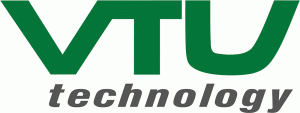 Pichia pastoris (Komagataella phaffii) is recognized as a highly competitive expression system for fast and economic production of recombinant proteins. Pichia offers many advantages. It is an established (FDA and EMA approved), safe (generally recognized as safe, GRAS), and highly competitive expression host with strong and effective secretory capacities often resulting in double-digit grams-per-liter product levels in culture supernatant. It combines advantageous properties of prokaryotes and mammalian cells. On one hand, Pichia cultures grow fast and can reach high cell densities on inexpensive and chemically defined media. On the other hand, the organism has a subcellular protein processing machinery, which is required for posttranslational modification and active secretion of proteins. Simplicity of genetic manipulation and high productivity paired with the capability to secrete recombinant proteins efficiently further underline the capabilities of P. pastoris for both R&D and commercial production. Levels of endogenous proteins in the culture supernatant are low, furnishing a raw product with high purity. Thus, Pichia not only enables cultivation processes with high volumetric productivity, but also simplifies downstream processes, thereby rendering manufacturing of recombinant proteins even more economically viable. By contrast with expensive, laborious, and intricate mammalian cell line generation (which is often associated with inherent genetic instabilities), establishing stable recombinant P. pastoris cells is a straightforward and time-saving process. Unlike bacterial and mammalian production systems, Pichia proteins are not contaminated with either endotoxins or viruses, thus alleviating safety concerns and further simplifying downstream processing in bioproduction. The high genetic stability and robustness of Pichia cells against mechanical stress make process development and scale-up a straightforward approach to scales of up to ~200,000 L.
Pichia pastoris (Komagataella phaffii) is recognized as a highly competitive expression system for fast and economic production of recombinant proteins. Pichia offers many advantages. It is an established (FDA and EMA approved), safe (generally recognized as safe, GRAS), and highly competitive expression host with strong and effective secretory capacities often resulting in double-digit grams-per-liter product levels in culture supernatant. It combines advantageous properties of prokaryotes and mammalian cells. On one hand, Pichia cultures grow fast and can reach high cell densities on inexpensive and chemically defined media. On the other hand, the organism has a subcellular protein processing machinery, which is required for posttranslational modification and active secretion of proteins. Simplicity of genetic manipulation and high productivity paired with the capability to secrete recombinant proteins efficiently further underline the capabilities of P. pastoris for both R&D and commercial production. Levels of endogenous proteins in the culture supernatant are low, furnishing a raw product with high purity. Thus, Pichia not only enables cultivation processes with high volumetric productivity, but also simplifies downstream processes, thereby rendering manufacturing of recombinant proteins even more economically viable. By contrast with expensive, laborious, and intricate mammalian cell line generation (which is often associated with inherent genetic instabilities), establishing stable recombinant P. pastoris cells is a straightforward and time-saving process. Unlike bacterial and mammalian production systems, Pichia proteins are not contaminated with either endotoxins or viruses, thus alleviating safety concerns and further simplifying downstream processing in bioproduction. The high genetic stability and robustness of Pichia cells against mechanical stress make process development and scale-up a straightforward approach to scales of up to ~200,000 L.
Login to read the full PDF of the white paper.
